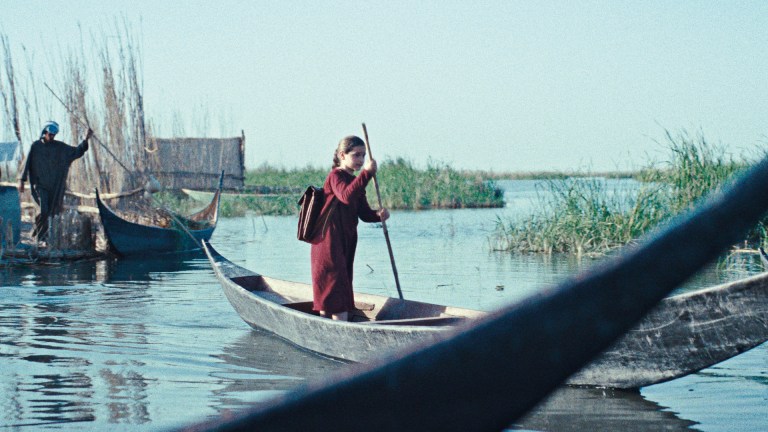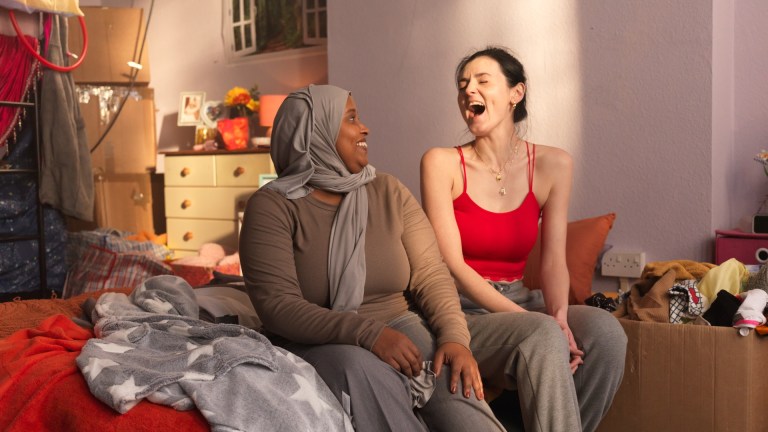As I started to dig into the period, and the black and mixed-race experience, I realised so many of the assumptions I had made were wrong. In Nazi Germany, there was a machine to murder Jewish people. If you were black you walked a tightrope. You could survive the war, but if you met the wrong SS officer on the wrong day, essentially, he could do whatever he wanted.
When you contextualise the black experience in Germany, you see what else is going on around the world. We were three years away from apartheid being enshrined into the laws of South Africa, black people in America were still being lynched and hung.
A lot of what Hitler did to Jewish people in the early stages – you can’t sit on this bench, you can’t sit in this swimming pool – he took from how America treated its blacks. Then obviously, he took it in his own direction completely.
Why are black experiences from that place and time not known or thought about?
I think that quite rightly, it’s been very important we focus on the major experience of the period, which was experienced by the Jewish people. At the same time, we also know there were others who were impacted, those who were gay, gypsies, others who didn’t fit into Hitler’s idea of what a pure society should be, and that included blacks.
Advertising helps fund Big Issue’s mission to end poverty
I’m a person of the African diaspora who was born in Europe and those stories simply haven’t been told because we don’t have as great a voice.
Our stories of black history are very limited. Dominant – even though it’s not the only experience of African Americans – is slavery. I’m a person of the African diaspora who was born in Europe and those stories simply haven’t been told because we don’t have as great a voice. The late Nigerian author Chinua Achebe said, until the lion has his own storyteller, the hunter will always be the hero.
Some people have criticised the film and at the heart of that, it seems there are the presumptions that a young girl trying to be normal in the most abnormal of times wouldn’t buy into some of the fascist propaganda, that a Nazi soldier could be anything other than downright despicable and that two imperfect people could fall in love. What are your thoughts?
It’s an emotive word I’m going to use but it’s all part of the dehumanisation that can go on when you put people of colour on screen.
I really want to explain that. We have not been allowed to have the full plethora of human experiences on screen as those who have had the privilege. We’re used to seeing white men, happy, sad, good, bad and everything in between. As a kid I knew more about white men than I did about any other group because they predominantly had the leading roles on TV.
We are not at a stage where we are fully humanising and allowing people of colour to be completely three dimensional and therefore anybody who’s pushing a boundary, or trying at least, can be seen as the bad guy. If that’s me, so be it.
This is a fictionalised story – what research did you do to establish this could be grounded in reality?
Advertising helps fund Big Issue’s mission to end poverty
I made sure I sat down and did interviews with those who had experienced Nazi Germany. I know what the feelings were, and I never would have dreamed on projecting them on somebody if I hadn’t heard them with my own ears.
We have as many different thoughts, experiences and learning curves, we go on journeys to find our moral code, as all people who are coming of age do. To tell me that that cannot be the experience of someone who’s of colour is actually dangerous.
Most of the experiences of persecution we see on screen happen in the context of a community. That doesn’t make it any better, but it does make it different. To act like we have to be held to some higher moral standard when you’re talking about a 15- or 16-year-old girl experiencing persecution totally isolated…
I’m not without understanding. I’ve done something which some would deem relatively radical, placed a young woman of colour at the centre of a story that we haven’t seen before. Some people are hungry for that, some will be angered. When privilege has been your everyday default, equality does feel like oppression.
You have said before that you’re “Not like McDonald’s. This is not a drive-in and you don’t get what you order.” Can you expand on that?
There’s a saying on social media, ‘who asked for this?’ That question doesn’t interest me. I am not McDonald’s. It’s not like you order what you want and I give it to you. There has to be room for all kinds of filmmakers and artists and storytellers.
Advertising helps fund Big Issue’s mission to end poverty
Why are there still so few films about a mixed race couple?
There are groups from all races across the board who may be completely on different sides of various other political agendas but on this one agenda agree. They don’t like the idea of mixed couples. You only have to go onto any YouTube trailer of a film involving a mixed couple and look at the comments underneath. There are quite horrific comments. Somehow they are allowed to remain up, because that’s what freedom of speech means, I guess. And that’s what allows me to make the films I want to make too, I guess.
We live in a world where racism has become more overt but what that overt racism is doing is hiding a racism and a prejudice that has existed all along, which is much more underhanded, low key and pervasive. It becomes harder to challenge because it’s covered by political correctness and polite language. The fact you might not feel comfortable with something on the screen doesn’t mean it should be shut down.
Where Hands Touch is in cinemas May 10









